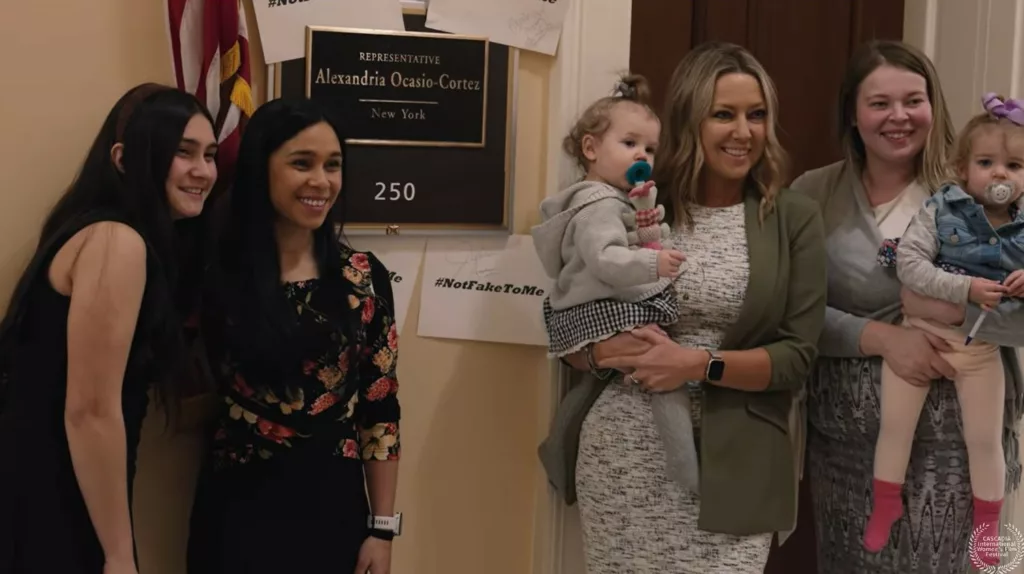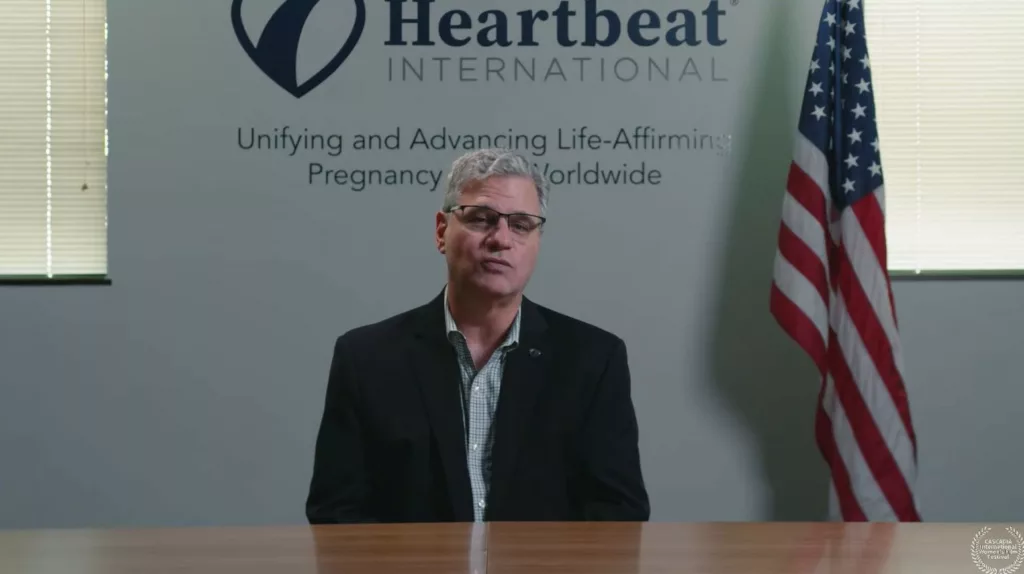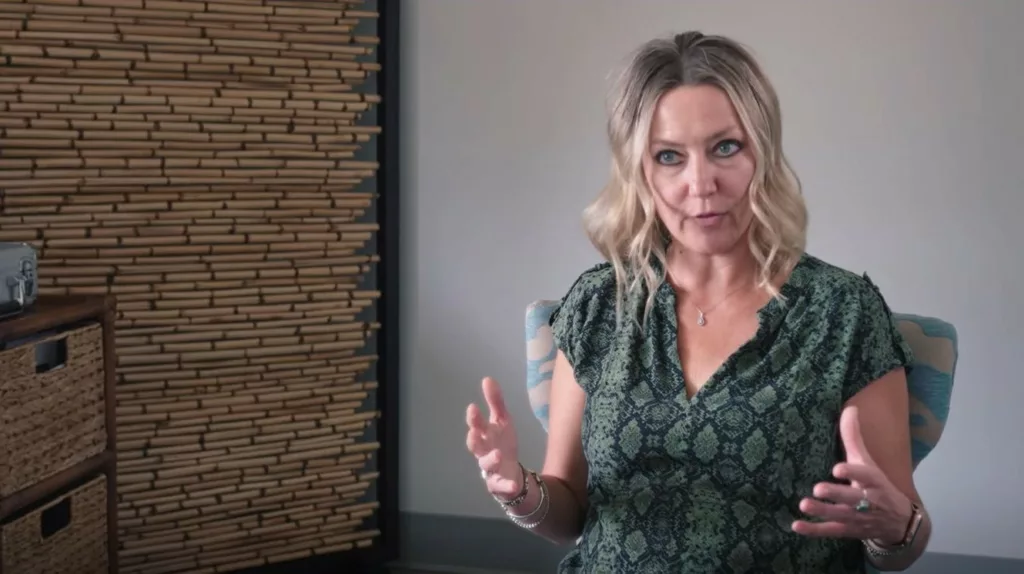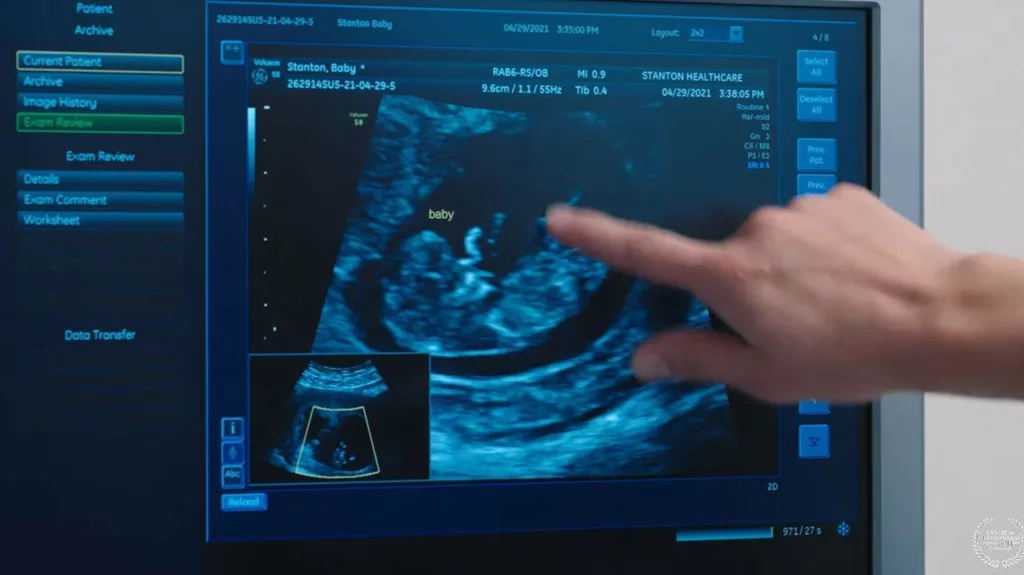Kate Dumke and Sabrine Keane shine a light on “Crisis Pregnancy Centers” in their new documentary. These facilities look like clinics but don’t actually offer medical care. Their goal is to talk women out of abortion through emotional appeals and misleading tactics.
Dumke and Keane tell the story by following two women who turned to these centers, Maleeha and Maria. Maleeha was an immigrant who mistakenly ended up at one while seeking affordable care. Though she later had a safe abortion, the experience left an uneasy feeling. Maria decided to carry her pregnancy to term after feeling supported by a center. But that support disappeared once the baby was born.
The directors interviewed those behind these campaigns too. We hear directly from CEOs about their growing networks and marketing strategies. These centers try to blend in near abortion clinics, then use religion to sway decisions. Shockingly, many receive taxpayer dollars despite lacking medical oversight.
By giving a balanced view, Dumke and Keane let all sides speak freely. This illuminates the depths of manipulation women may face during vulnerability. Their documentary is an eye-opening look at the groups influencing abortion access during this major civil rights debate.
Undercover Clinics
Something wasn’t quite adding up in Maleeha’s case. Like too many others, she found herself unexpectedly expecting – and in need of help. Yet the facility she sought simply stirred more stress into an already sensitive situation.
Only later did Preconceived unveil the full extent of such centers and their mission. Known as Crisis Pregnancy Centers, or CPCs, these storefront organizations masquerade as medical clinics. But examination shows their primary purpose lies elsewhere.
Rather than reliable care, CPCs focus on discouraging women from terminating pregnancies. Particularly striking, over 2500 now exist nationwide – dwarfing the scarce 800 abortion providers. Their tactics involve more than just counseling contrary views.
CPCs locate near legitimate practices to easily attract those already contemplating abortion. While professing compassion, interviews reveal an agenda rooted more in coercion than care. Misleading medical claims and faith-focused fearmongering aim to delay women past the crucial decision window.
Not merely advising alternative options, these centers leverage vulnerability to push predetermined conclusions. Displaying little regard for how restricted access negatively impacts lives already in precarious positions.
As the film probes, CPCs form part of a sprawling machine. Well-funded operations systematically deploy preying pastoralism under the guise of guarding innocence. However, for those tasked with navigating life’s hardest realities alone, compassion demands more than condemnation claiming to know best.
By what means does one truly defend potential life, without unduly burdening lives already begun? As ever, the path sincerely served by care, conviction and clear-eyed conscience remains the most worthy way.
Facing the Consequences
Two women lay at the heart of this documentary. Maleeha and Maria show how crisis pregnancy centers affect real lives in deeply personal ways.
Maleeha was just starting out in America when an unexpected pregnancy arose. Searching for assistance, she came across a facility calling itself a clinic. But strange religious language filled the appointment. Information provided clashed with her own research. Confused and pressured, Maleeha nearly fell for their tactics. Thankfully, her will proved stronger than their manipulation.
We see Maleeha years later, discussing her experience freely. Having safely terminated that first pregnancy enabled her future. When ready, she gave birth to a baby she welcomed with full support. Maleeha shows how the alternative could have trapped her in an impossible situation against her choice.
Maria’s story shows a darker reality. Though kind staffers comforted her initially, no real care followed. Facing single motherhood alone, she leaned on promises of help that soon vanished. Struggling to afford basic needs, Maria faced the cruelty of a system rigged to preach, not provide. Her situation serves as a warning – preaching life seldom means supporting it.
Through Maleeha and Maria, we feel the human toll of political games. Maleeha’s resilience inspires us to defend others from similar deception. Maria’s struggle underscores why “pro-life” policies so often disregard life’s difficulties. Both remind us the most personal choices demand a framework of care, not coercion or empty slogans.
These women gave deeply personal accounts for an important reason – to put human faces on abstract issues. Their bravery ensures we don’t lose sight of realities behind rhetoric. And their diversity shows how such impacts span all walks of life. When facing complex questions, Maleeha and Maria remind us the most important perspectives come from those living with the consequences.
The Power Behind Pregnancy Centers
Government overreach or shrewd political strategy? The support received by Crisis Pregnancy Centers opens a window into modern abortion battles.
We see CPCs proliferating in Republican states, their messaging aligning with conservative agendas. Simultaneously, actual clinics face closure through new restrictions. It’s clear these centers serve greater ideological ends.
But their methods also reveal political savvy. Strategically copying clinic aesthetics misleads those most vulnerable. Locating near “competition” better attracts scared patients. Such tactics pull focus from medical care to pressing beliefs.
Meanwhile, taxpayer dollars flow towards centers providing no licensed services. Half a billion annually – more funding than actual clinics. This when poverty and lack of parental leave endanger new lives.
Some defend diversion of funds as free speech. But when does outreach become manipulation under false pretenses? Especially targeting minority communities lacking options?These centers blur medical lines without medical rules.
Deeper still, evangelical and Catholic groups drive messaging nationwide through aligned organizations. Not neutral good Samaritans, but a coordinated front with future voters in mind. Politicians then tighten abortion laws, pleasing bases but neglecting new mothers’ needs.
The money trail and nationwide coordination uncover pregnancy centers as cogs in a well-oiled machine. Their growth reflects rising religious influence, where “pro-life” becomes a weapon in aggressive culture wars instead of caring for lives affected. When does support become overreach?
Exposing the Inner Workings
“Preconceived” offers rare insight into influential anti-abortion groups. We hear straight from the heads of Stanton Healthcare and Heartbeat International, two Goliaths within the crisis pregnancy center industry.
Stanton’s director shares their methods without an ounce of shame. They target vulnerable populations and open locations strategically – near clinics providing actual care. It’s easy money disguising manipulation as concern. Heartbeat takes a softer approach yet wields extensive power through affiliates worldwide.
The documentary asks tough questions. Do these centers uphold basic ethics? Brandi from Stanton likens competition to fast food joints, yet one offers facts while the other spreads misinformation to vulnerable women. Heartbeat’s records aren’t secure like medical files, jeopardizing those who seek help.
Neither shows remorse for opaque goals. They want women to see pregnancy through without support later promised. Converting lost souls seems priority over compassion. When asked how centers really function, practiced responses dodge practical morality.
It’s revealing how open leaders stay on message yet say little. Viewers learn operations scope but not their human toll. For all talk of “life”, do these groups respect each story’s complexity? Or do strategies dehumanize those most in need?
Through it all, “Preconceived” let’s their words speak. We gain a rare peek behind costly facades, exposing disconnect between well-oiled machines and real lives at stake every day.
Moving the Conversation Forward
This documentary packs a punch with its informative look inside crisis pregnancy centers. Filmmakers Keane and Dumke show their strength as storytellers and investigators. Piece by piece, “Preconceived” lays bare the strategic operations of these organizations. We see their misleading tactics and lack of medical credentials up close.
At the same time, the directors keep conversations flowing. Center leaders speak freely, leaving audiences to make their own judgments. And through personal tales, we feel the human impact. Maleeha and Maria’s experiences personalize what’s truly at stake. Their presence leaves a mark.
Still, one thing could take an already sharp film to the next level – including another voice who navigated these waters differently. Maria’s story lingers heavy as support fades. But what of a subject who, despite discouragement, still exercised her right to choose? Hearing that perspective could offer more depth.
Overall, this serves as a model of issue-driven documentary done right. Keane and Dumke gather facts judiciously and let them tell the story. While no film is perfect, their rigor and care make “Preconceived” must-see viewing. It starts crucial discussions and spotlights little-seen angles of a vitally important debate. Their skills and passion for truth-telling shine through. When craft and cause combine so effectively, great work results.
Still Striving for Truth and Choice
This film couldn’t have arrived at a more pivotal moment. In the few years since Roe fell, the situation has only grown more dire. But as access shrank in some states, “Preconceived” ensured the real cost of these policies remains clear.
By focusing on crisis pregnancy centers, the directors shed light on a key front in the ongoing debate. Their up-close examination leaves no question about methods used or impacts felt. And while such operations remain determined, the film stands firm beside those still determined to speak their truth.
In telling personal stories and following money trails, Keane and Dumke illuminated a national struggle in deeply human terms. Their thoroughness and balance also model the discussion we must continue to have – one grounded in facts, diverse views and shared humanity.
Because for as long as any face barriers to their basic rights and care, the need remains no less pressing. By making such resilient voices heard, “Preconceived” plays its part in a struggle far from over. Its compassion and clarity sustain hope that one day, choice and dignity may be extended to all.
The Review
Preconceived
"Preconceived" delivers a compelling look at an important issue through balanced yet impactful storytelling. Although the subject matter is distressing, the directors handle it with care, compassion and factual substantiation. They productively continue the conversation in a way that informs without accusation. All told, the film is a thought-provoking Must See that deserves wide discussion. It has my strong recommendation.
PROS
- Engaging storytelling that brings important issue to light through personal stories.
- Thorough investigative work and access to wide range of knowledgeable subjects on both sides.
- Even-handed treatment that lets viewers make up their own minds based on factual information presented.
- Timely examination of relevant issue that will continue impacting policy decisions.
CONS
- Heavy, upsetting subject matter for some audiences.
- May frustrate those seeking more solutions-oriented approach beyond information exposure.
- Chronology of documentary could potentially be restructured for smoother flow at times.





















































